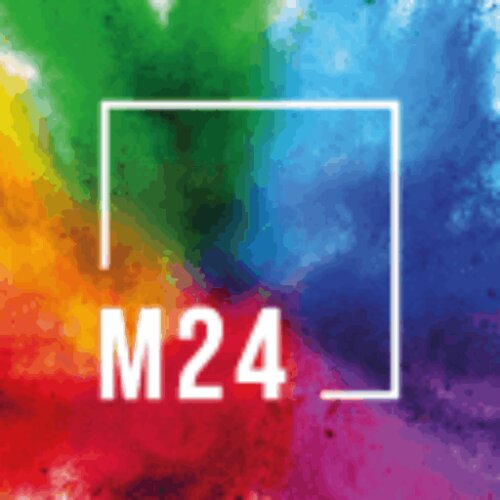Best ADR Mediation & Arbitration Lawyers in Liège
Share your needs with us, get contacted by law firms.
Free. Takes 2 min.
List of the best lawyers in Liège, Belgium
About ADR Mediation & Arbitration Law in Liège, Belgium
Alternative Dispute Resolution (ADR) covers methods outside traditional court proceedings to resolve conflicts between individuals, businesses, or organizations. In Liège, Belgium, the most commonly used forms of ADR are mediation and arbitration. Mediation involves a neutral third party facilitating negotiation to help the parties reach a voluntary agreement, while arbitration appoints an independent arbitrator to make binding decisions. Belgian law encourages ADR as a way to ease the burden on courts and provide faster, more flexible, and potentially less costly solutions, especially in civil, commercial, and labor disputes. The courts in Liège often recommend or require ADR before certain cases can proceed to litigation.
Why You May Need a Lawyer
There are several reasons why individuals and businesses in Liège may need a lawyer experienced in ADR mediation and arbitration. Common situations include contract disputes, workplace conflicts, commercial disagreements, family law matters (such as divorce or child custody), landlord-tenant issues, or when a specific contract requires disputes to be resolved using ADR methods. Lawyers help clients understand the ADR process, ensure their rights and interests are protected, and can represent them in either mediation or arbitration sessions. Additionally, legal counsel can help draft effective settlement agreements and make sure any arbitration awards are enforceable under Belgian and international law.
Local Laws Overview
ADR processes in Liège are governed under both national Belgian law and local regulations. The Belgian Judicial Code recognises and promotes mediation and arbitration as valid dispute resolution methods. Since 2018, Belgian law has made it easier for parties to choose mediation and formalizes the qualifications required for mediators. Arbitration is governed by Part VI of the Judicial Code, which is modeled closely after the UNCITRAL Model Law. Local courts in Liège often support the implementation of ADR through administrative guidance and may refer cases to mediation before they are allowed to proceed to trial. It is also notable that many industry sectors in Belgium have specific arbitration centers or mediation bodies to handle sector-related disputes.
Frequently Asked Questions
What is the difference between mediation and arbitration?
Mediation is a voluntary and confidential process where an impartial mediator helps the parties reach their own agreement. Arbitration involves an arbitrator who listens to both sides and issues a binding decision, similar to a court judgment.
Is participation in mediation or arbitration required by law in Liège?
In some types of disputes, courts in Liège may require parties to attempt mediation before proceeding to trial. Arbitration is usually voluntary or mandated by a specific contract clause.
Can I be represented by a lawyer during mediation or arbitration?
Yes, you may choose to have a lawyer represent or advise you during mediation or arbitration sessions, ensuring your interests are effectively communicated and safeguarded.
Are the outcomes of mediation or arbitration legally binding?
Agreements reached in mediation become binding once both parties sign a written agreement. Arbitration awards are typically binding and enforceable in court.
What kinds of disputes are commonly resolved through ADR in Liège?
Common disputes include commercial disagreements, contractual issues, family law matters, real estate conflicts, employment disputes, and certain consumer complaints.
How long does the ADR process usually take?
Mediation can often be completed within a few sessions, depending on the complexity of the case. Arbitration can take several months but is usually faster than court litigation.
How much does ADR cost in Liège?
Costs vary depending on the mediator or arbitrator's fees, the complexity of the case, and how many sessions are required. Mediation is generally less expensive than arbitration or litigation.
Can I appeal an arbitration decision?
Arbitration awards are final and can only be appealed in limited circumstances, such as serious procedural errors or fraud. Courts in Liège generally uphold arbitration decisions.
Is ADR confidential?
Yes, both mediation and arbitration in Belgium are confidential. Information disclosed during sessions cannot usually be used in court if the resolution fails.
What qualifications should an ADR professional have in Belgium?
Mediators in Belgium must be officially accredited, and arbitrators are generally expected to have specific expertise in the relevant legal field. Always verify credentials before choosing an ADR professional.
Additional Resources
- Federal Mediation Commission (Commission fédérale de Médiation): Supervises mediator accreditation and the list of certified mediators. - Belgian Arbitration and Mediation Center (CEPANI): The leading organization in Belgium for arbitration and mediation services. - Local Bar Association in Liège (Ordre des Barreaux francophones et germanophone): Provides information and referrals to ADR-trained lawyers. - Justice of Peace Courts in Liège: Can provide ADR information specific to local disputes. - Governmental website Justice.belgium.be: Official information about mediation, arbitration, and legal proceedings.
Next Steps
If you are facing a dispute and wish to consider ADR in Liège, Belgium, the first step is to consult with a lawyer experienced in mediation and arbitration law. Gather all relevant documents and information about your case before your meeting. Your lawyer can advise you about the options available, represent your interests, and guide you through either mediation or arbitration. If you do not know where to find a suitable legal professional, contact the local bar association for a referral. It is often beneficial to act quickly, as timely action may lead to faster, more cost-effective solutions than prolonged litigation.
Lawzana helps you find the best lawyers and law firms in Liège through a curated and pre-screened list of qualified legal professionals. Our platform offers rankings and detailed profiles of attorneys and law firms, allowing you to compare based on practice areas, including ADR Mediation & Arbitration , experience, and client feedback.
Each profile includes a description of the firm's areas of practice, client reviews, team members and partners, year of establishment, spoken languages, office locations, contact information, social media presence, and any published articles or resources. Most firms on our platform speak English and are experienced in both local and international legal matters.
Get a quote from top-rated law firms in Liège, Belgium — quickly, securely, and without unnecessary hassle.
Disclaimer:
The information provided on this page is for general informational purposes only and does not constitute legal advice. While we strive to ensure the accuracy and relevance of the content, legal information may change over time, and interpretations of the law can vary. You should always consult with a qualified legal professional for advice specific to your situation.
We disclaim all liability for actions taken or not taken based on the content of this page. If you believe any information is incorrect or outdated, please contact us, and we will review and update it where appropriate.














